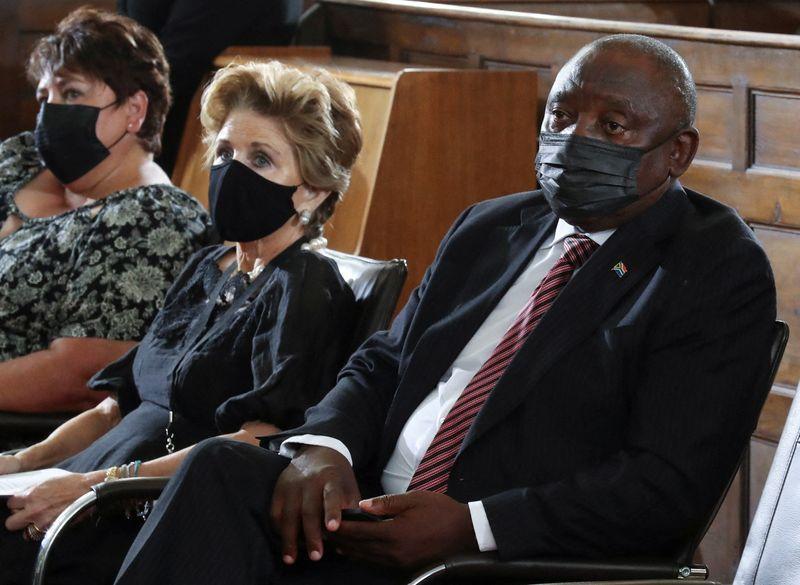PRESIDENT Cyril Ramaphosa on Sunday called the late FW de Klerk “brave” for challenging his party to negotiate an end to the white minority regime, but also detailed the horrors of the National Party’s regime he led and his fear democratic change.
De Klerk, credited with overseeing a peaceful transition from a white minority regime in South Africa to a predominantly black government led by Nelson Mandela, died last month at the age of 85 from the effects of cancer.
“By taking such a bold step, FW de Klerk has stood up against many members of his own party and many white South Africans,” Ramaphosa said on Sunday at a state memorial service in honour of from the old leader.
De Klerk shared the Nobel Peace Prize with Mandela in 1993 for his role in suppressing apartheid, but many black South Africans suspect he was motivated entirely by pragmatism rather than a change of mind, given that the government was internationally isolated and faced with the prospect of civil war.
On his deathbed, however, de Klerk apologized “wholeheartedly … for the pain and the hurt and the indignity and damage that apartheid has caused”.
Ramaphosa began Sunday’s eulogy by reminding mourners that de Klerk was “brought up in the ideology of racial superiority (and) engaged in the defense of a heinous and inhuman system.”
Stressing his inhumanity, Ramaphosa recalled the murders and tortures of activists of the African National Congress, which now rules the country, such as the hanging of Solomon Mahlangu.
He suggested that de Klerk had few options when he began the peace talks that ushered in democracy.
“The country was faced with a difficult choice between a negotiated settlement and a protracted civil war … far more destructive than anything we had experienced before,” he said.
Ramaphosa also noted that de Klerk was ambivalent about the democracy he helped initiate.
“Even when he entered the negotiations, he feared majority rule,” the president said.
“Even as he spoke about equal rights for all, he and his party wanted minority rights, cultural rights and the language of Afrikaans to be protected. Even as he expressed his doubts about some parts of the Constitution, he was prepared to acknowledge that it provided a foundation for a South Africa in which the rights and freedoms of all its people would be guaranteed. “
After some deliberation, de Klerk’s funeral was a private ceremony last month. Offering a state funeral to a former apartheid leader, even the one who negotiated an end to it, could have sparked protests.
The government nevertheless declared four days of national mourning, with a state memorial service.

